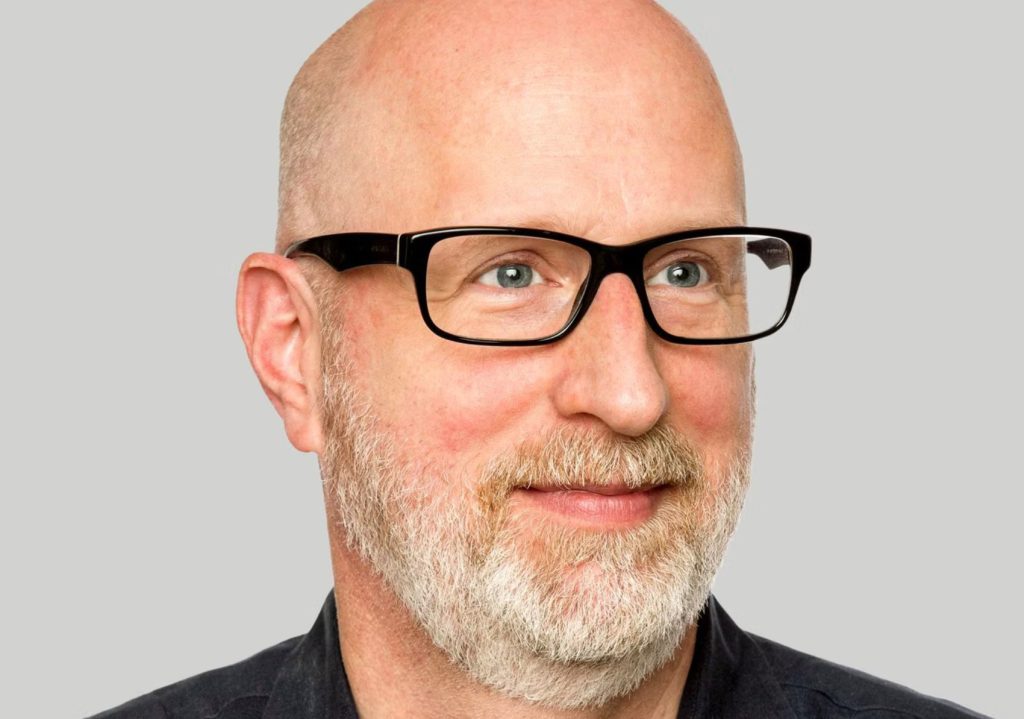Political commentator, New York Times columnist, and attorney David French visited Boston College Law School on April 25 to impart his views on campus speech and take questions from the audience. French, a US Army veteran, characterizes himself as a free speech absolutist. In his estimation, he’s spent over thirty years litigating over and advocating for free speech and religious liberty, particularly in the realm of higher education.
French had an evangelical upbringing and attended David Lipscomb College (now Lipscomb University), a Church of Christ-affiliated private university in Nashville. Recognizing the lack of intellectual diversity at Lipscomb, French made the decision to venture beyond his cultural bubble and study at Harvard Law School. “I was ready to encounter a world of ideas… I was ready to engage, to talk to the smartest people that I could find who disagreed with me, to know more about their ideas, legal theories, and political ideas,” he said. “But what I began to understand was that this glorious marketplace of ideas that I had hoped to enter didn’t exist.”
In 1991, that campus and others like it were in the early throes of what French labeled political correctness. “It was the sense that we are not going to be tolerant of views that we believe to be intolerant,” he said.
As a known conservative on Harvard’s campus, French felt the scorn of his classmates, and saw himself the victim of an early fusillade in the brewing culture war that has since gripped the nation. “Students declared holy war on each other, and the first casualty was free speech.”
“We all possess incalculable worth, and it is incumbent on us all to protect fundamental human dignity, which includes the right to speak on an equal basis.”
David French
According to French, most Americans take their freedom of speech for granted, unaware of the fragile precipice on which it stands. Some, he claims, go so far as to view free speech as an impediment to justice rather than a facilitator thereof. “We all possess incalculable worth, and it is incumbent on us all to protect fundamental human dignity, which includes the right to speak on an equal basis,” he said, pointedly.
“If I shut you down, if I prevent you from speaking to me on any number of issues, I am saying in a decisive and emphatic way that I am confident enough in my righteousness and my truth that you have nothing to offer me,” French said.
He relayed an anecdote about Frederick Douglass from 1859: While preparing to deliver a speech at an abolitionist event here in Boston, a pro-slavery mob disrupted the gathering and prevented Douglass from taking the stage. The police, rather than dispersing the hecklers, canceled the event altogether. Weeks later, Douglass penned a scathing jeremiad, entitled “A Plea for Free Speech in Boston,” in which he referred to “the right to utter one’s thoughts and opinions” as “the dread of tyrants.”
He proceeded to draw a comparison between that dark day in the history of American free speech and the current wave of student protests on campuses like UC Berkeley and Columbia. And he had a few words of advice for the protesters, college administrators, and the nation.
“We have to protect true free speech, respect true civil disobedience, and uphold the rule of law,” by which he meant making space for all of those virtues while combating so-called “chaos and disruption.” He maintained that campus policies should treat all viewpoints neutrally, with equal protection and equal access to limited resources and shared spaces on campus. “By imposing reasonable time, place, and manner restrictions on protest, universities can ensure that no one viewpoint is excluded… we need to be able to take turns,” he pleaded.
In the end, French was optimistic about the future of free speech in America and on our campuses: “This is an opportunity for campuses to reboot and double down on a commitment to free speech, civil disobedience, and lawfulness,” he said. “I won’t say that campuses will be harmonious, or that free speech is some utopian doctrine… it recognizes our fallibility, and it is our best mechanism to make natural conflict sustainable and non-violent.”


